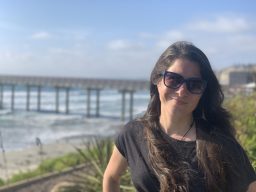
Moira Décima
Associate Professor and SIO PIC Curator
mdecima@ucsd.eduDr. Décima's interests include zooplankton ecology, marine pelagic food-webs, gelatinous zooplankton, and carbon and nutrient cycling. The Décima lab is currently focusing on:
- Quantifying trophic pathways within the lower pelagic food-web using experiments, stable isotopes, pigment-based estimates, and modelling approaches.
- Understanding the effects of crustacean zooplankton and pelagic tunicates on the marine food-web and biogeochemistry.
- Assessing the effects of climate change, including warming, acidification, and extreme events like wildfires and marine heatwaves, on marine plankton assemblages.
These research areas are investigated in various regions of the world, including: the California Current, the Southwest Pacific, the Ross Sea, the Indian Ocean, the North Pacific Subtropical Gyre, and the Eastern Equatorial Pacific. Dr. Décima is also the curator of the Scripps Institution of Oceanography Pelagic Invertebrate Collection (SIO- PIC), one of the largest and most comprehensive collections of pelagic invertebrates in the world.

Kristina Fleetwood
MS student
kfleetwood@ucsd.edu
Danielle Kampers
Graduate student
dkampers@ucsd.eduDanielle, a Fulbright Scholar from Sydney, Australia, is pursuing her MS in Biological Oceanography. She completed her BS in Marine Biology at James Cook University in Townsville before moving into a graduate role at the Australian Institute of Marine Science (AIMS). During her time at AIMS, Danielle focused on analyzing BRUVs (Baited Remote Underwater Video) data to assess fish population health within Sea Country, working with Traditional Owner groups across northern Australia. She is passionate about advocating for the inclusion of Indigenous perspectives in research as a means to address environmental challenges.
In the Décima Lab, Danielle studies the interactions between zooplankton and phytoplankton populations, exploring how nutrient availability affects these interactions and, in turn, influences the structure and functioning of marine food webs in the Californian ecosystem. Outside of her studies, Danielle leads an active lifestyle, enjoying running, diving, and recently taking up rollerblading after moving to California.

Danya Awshah
PhD student
dawshah@ucsd.edu
Dante Capone
PhD Student
dcapone@ucsd.eduDante is a 5th year PhD Student in Biological Oceanography hailing from Sebastopol in Northern California. He earned a BS in Earth Sciences-Ocean Sciences concentration and a BS in Marine Biology from University of California, Santa Cruz. After spending his final quarter studying abroad at the University of Queensland he returned to Sebastopol to work in the Coastal Oceanography Group at the Bodega Bay Marine Lab.
The intense California wildfires during Dante's first research cruise in August 2020 inspired his research interests in the effects of the wildfires on the marine environment. For his dissertation research Dante is examining how smoke and ash from wildfires may impact the carbon cycle and the pelagic planktonic community in the California Current Ecosystem. Dante is also a member of the Program for Interdisciplinary Environmental Research (PIER), seeking to collaborate with non-scientist experts, especially artists to make findings more accessible. Dante is also interested in integrating emerging molecular DNA metabarcoding methods with morphological and image-based methods of zooplankton through advanced statistical and machine-learning techniques, and using these tools to resolve environmental diversity patterns in the CCE.
Outside of research Dante enjoys physical activity especially running, yoga, skateboarding, cycling, and swimming and is a member of the Lane Zero Athletics Club where he competes in distances from 5k-marathon. Dante also likes to work his creative side through sourdough bread baking and art-primarily through pen and ink drawing. After a long lab day at SIO, Dante's go to refreshment is a dip in the Pacific ocean.
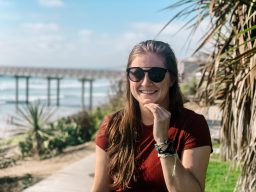
Grace Cawley
PhD Student
gcawley@ucsd.eduGrace is a 4th year PhD student originally from Salem, Massachusetts. Grace attended University of San Diego from 2015-2020, earning a BA and then MS in Environmental and Ocean Sciences (Marine Ecology pathway). Her thesis research with Dr. Jennifer Prairie focused on the ingestion and selection of marine snow by copepods.
In the Decima Lab, Grace's research focuses on the role gelatinous zooplankton, specifically pyrosomes, play in the ecosystem. Her work focuses on their intrusion into the California Current Ecosystem over the past decade and the consequences for trophic interactions and biogeochemistry.
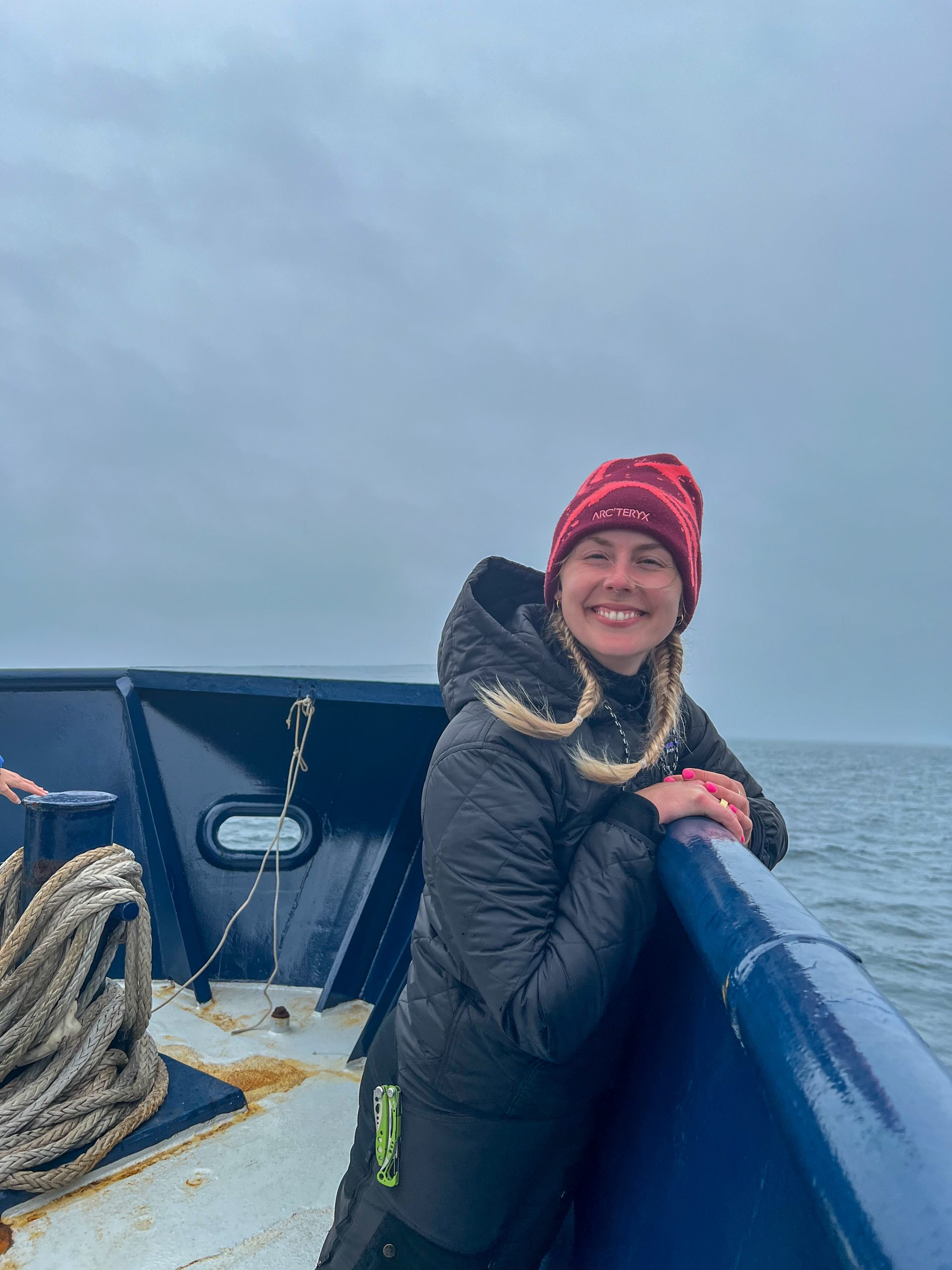
Anya Štajner
PhD Student
astajner@ucsd.eduAnya Štajner is a 4th year PhD student in the Biological Oceanography program at Scripps Institution of Oceanography. She completed her undergraduate’s degree at the University of California, Davis where she studied Marine and Coastal Sciences with an Emphasis in Organismal Biology and Ecology.
Anya studies zooplankton ecology focusing on pteropods (aka "sea butterflies) in the Southern California Current System as bioindicators for ocean acidification. Additionally, she is a co-coordinator and tour guide for Scripps Community Outreach for Public Education (SCOPE) and enjoys posting on her science-focused instagram account (@PlanktonPrincess).
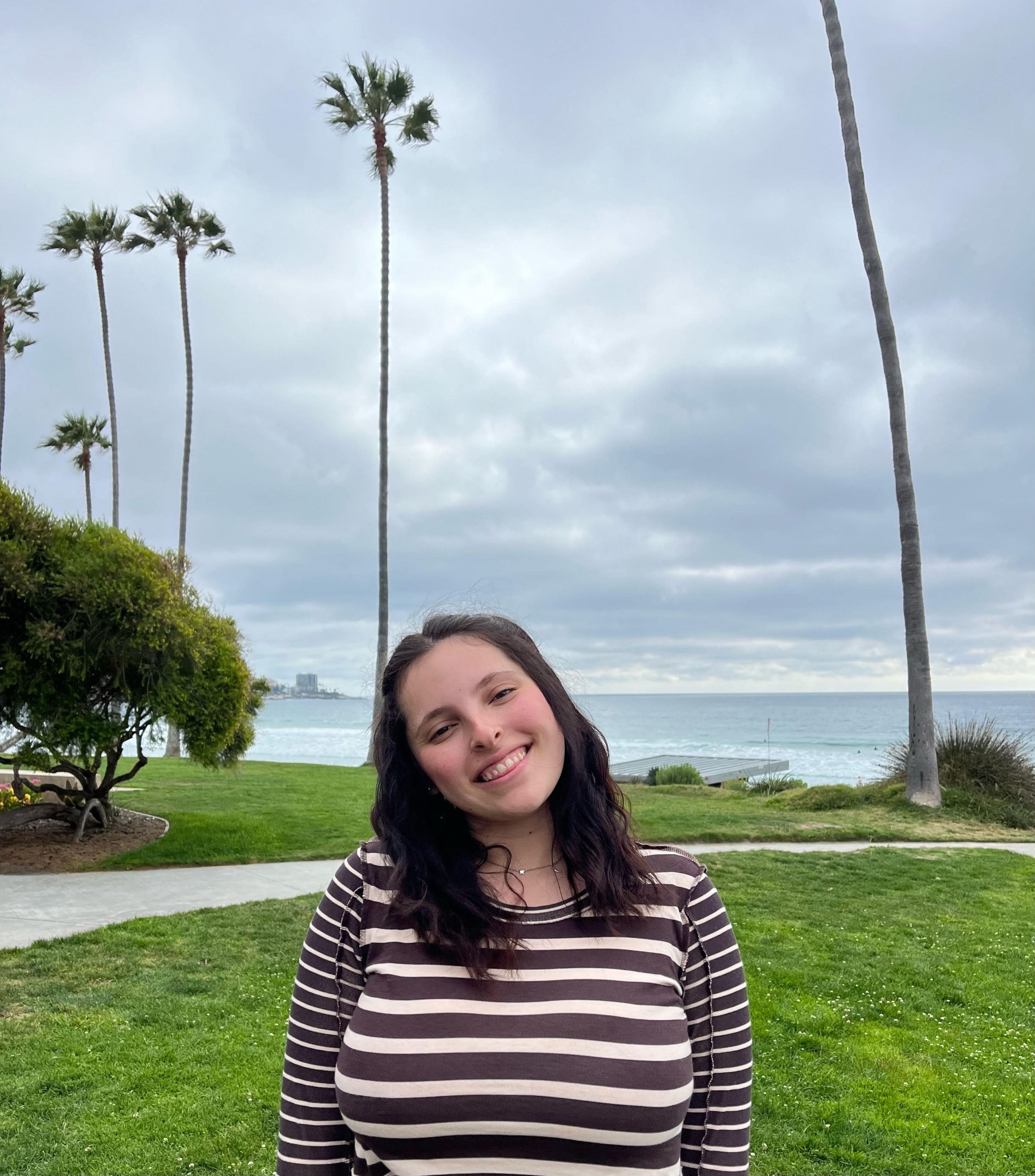
Anna Rosenbaum
Undergraduate Research Assistant
anrosenbaum@ucsd.eduAnna is an undergraduate pursuing a B.S. in Marine Biology with a Data Science minor. She previously worked at a Baylor College of Medicine in the Deneen Laboratory focusing on the IGSF3 gene in regards to Glioblastoma. With the work done in the Deneen Laboratory, she was able to be cited as an author on a paper published in Cell. In the Decima Lab, she works with CALCOFI samples by sorting for pteropods and other shelled zooplankton as well as using the Zooscan to process samples for community composition analysis.
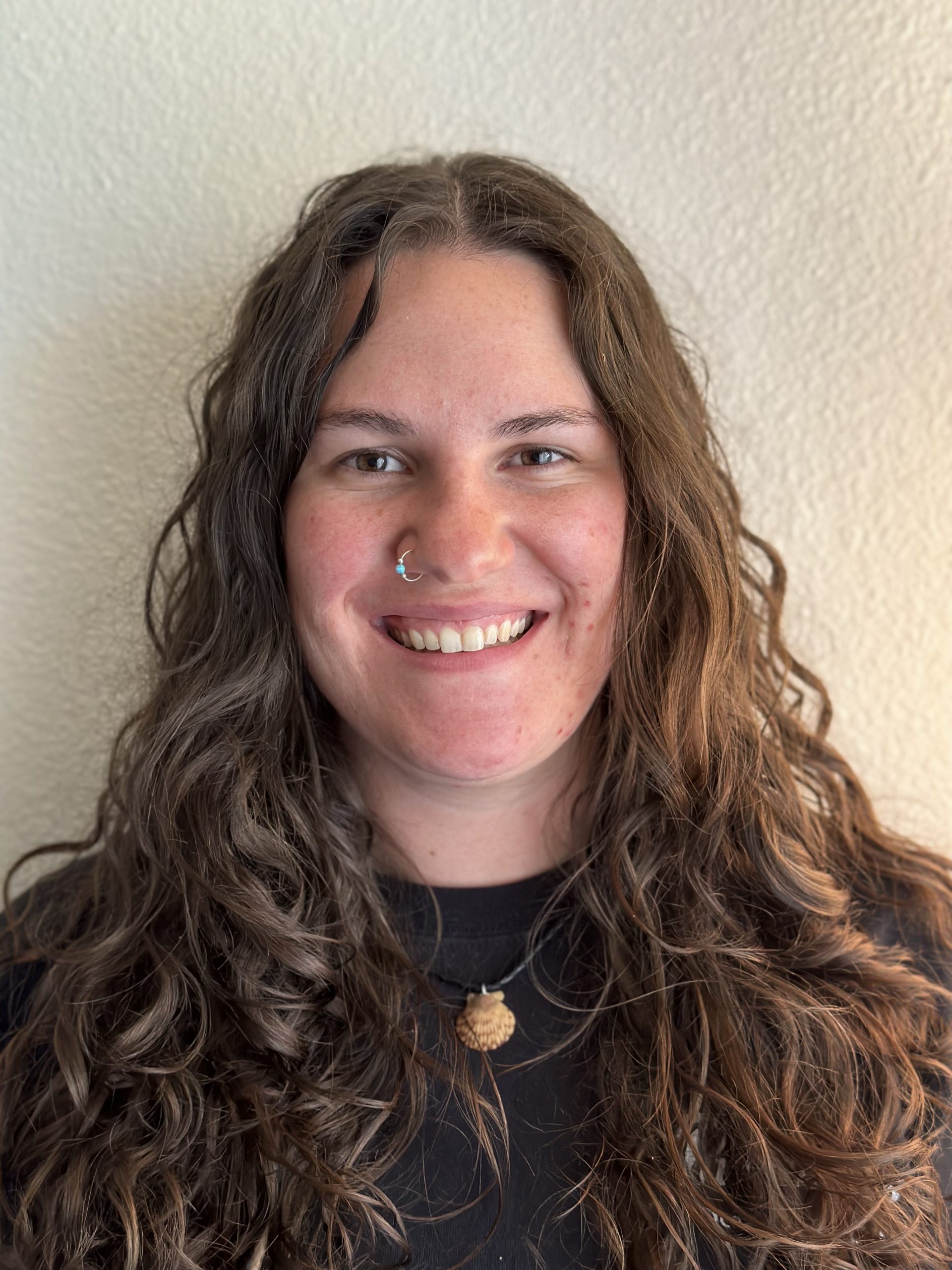
Alexie Bulmer
Undergraduate Research Assistant
abulmer@ucsd.eduCharlene Mae Ruiz
BS/MS Student
Charlene in a BS/MS student in the marine biology program at Scripps Institution of Oceanography. She is in the process of finishing her undergraduate program at UC San Diego before moving forward with her master's in the Decima Lab. For her undergraduate independent research project, she utilized CCE LTER data to analyze trends in phytoplankton community structures in the California current. She is interested in salp bloom cycles and ecological modeling. Outside of the lab, Charlene enjoys scuba diving, hiking, and has a fledging butterfly garden.
Past Lab Members
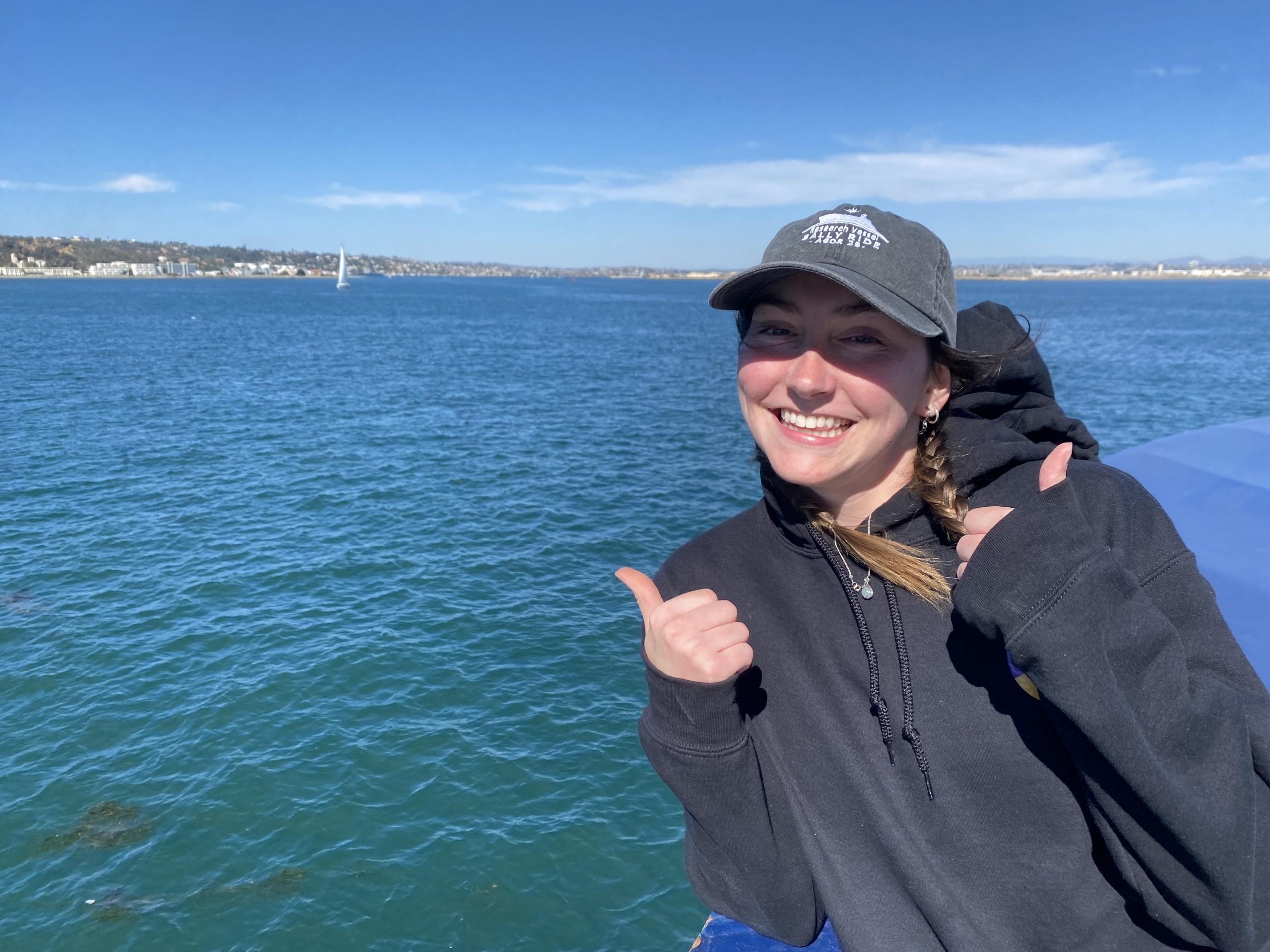
Anna McSorley
Undergraduate Research Assistant
Anna McSorley is a fourth year at UC San Diego, pursuing a B.S. in Marine Biology and a B.A. in Political Science -American Politics. In the Décima Lab, Anna works with pyrosomes, measuring their chlorophyll and packaging them for isotope analysis so we can better understand their trophic role in the California Current Ecosystem. In addition, Anna cultivates 10 different phytoplankton strains and processes MOCNESS cruise samples for isotope analysis. Previously, Anna utilized the Zooscan for taxonomic and community composition analysis of various samples.
In the fall of 2024, Anna will attend UCLA Law, where she plans to integrate her scientific understanding of zooplankton and ocean conditions into a specialization in environmental law. She hopes to help bridge the gap between scientific research and legal frameworks, facilitating the translation of scientific findings into effective environmental policies, particularly in addressing climate change.
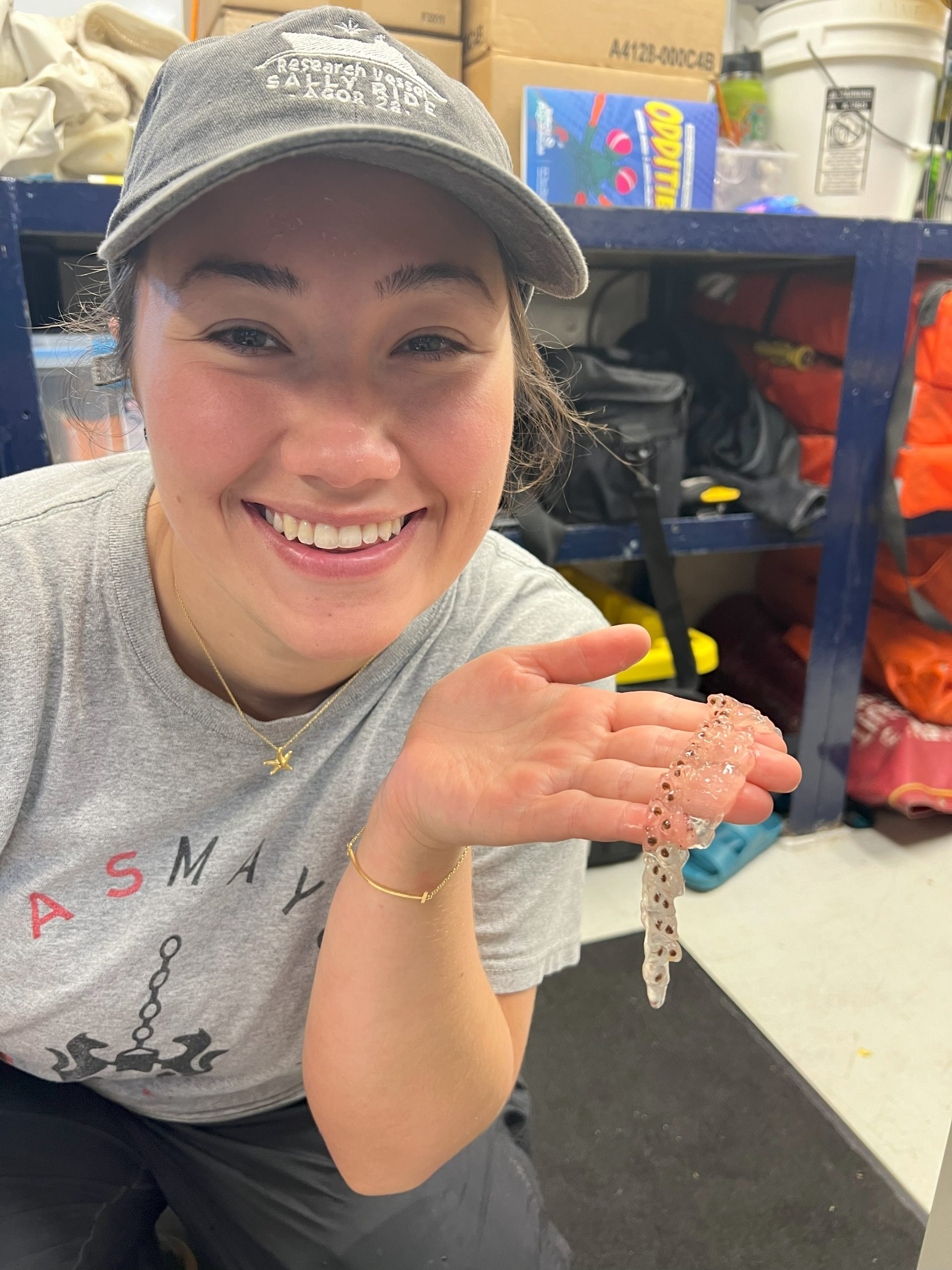
Ana Sofia Barrera
Undergraduate Research Assistant/ Summer REU
asbarrer@ucsd.eduAna Sofia is a senior undergraduate student originally from Mexico City. She’ll graduate from UC San Diego with a bachelor’s in Biology and a minor in Marine Science. From sea slug karyotypes to the ecology of intertidal red algae, Ana Sofia has spent her undergrad studying the biological wonders of the Pacific Ocean.
Currently, Ana Sofia is working at the Décima Lab as a Sorting Assistant while finishing her senior project on implementing molecular monitoring techniques for pteropods (small pelagic mollusks) in the CCE.
Ana Sofia enjoys reading, swimming, salsa dancing, and surfing with friends in her free time!

Emma Thorpe
Summer REU Student
Emma is an undergraduate student studying marine biology and climate change studies at UCSD. They are studying the impacts of wildfire ash and aerosols on phytoplankton growth rates. Outside of research they enjoy hiking, going on mushroom forays, and whittling.
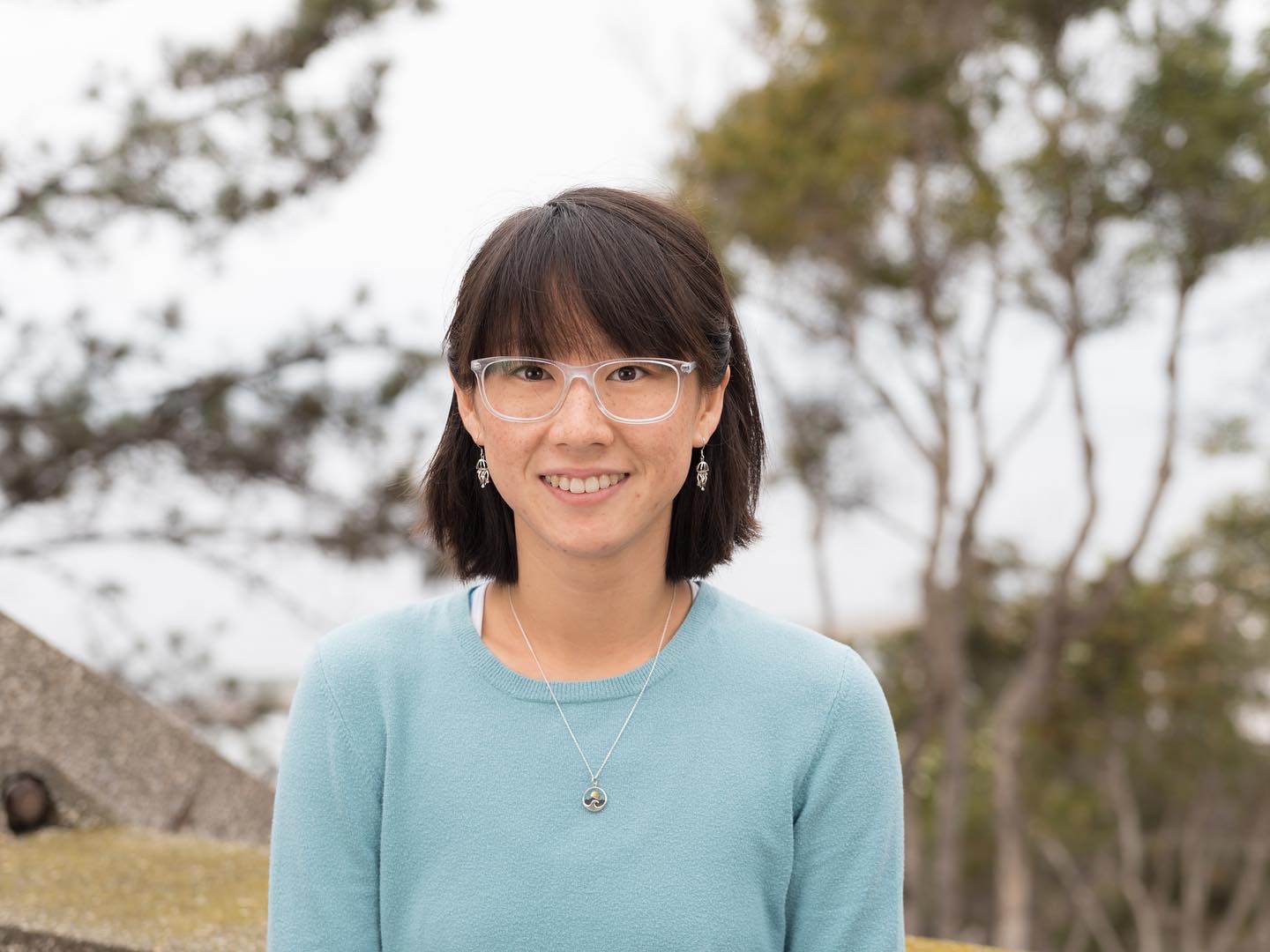
Annie Effinger
Master's student
Annie finished her thesis and obtained her masters degree in marine biology at the Scripps Institution of Oceanography in Winter 2024, focusing on Zooplankton grazing in the California Current. Annie obtained her bachelor's degree from the University of California, San Diego in 2022, where she also studied marine biology and zooplankton ecology in the Décima Lab.
When she is not working in the lab or studying, Annie can be found rock climbing all over San Diego. Her other hobbies include swimming, hiking, and photography. Her favorite zooplankton is currently an ostracod because they look like jellybeans.
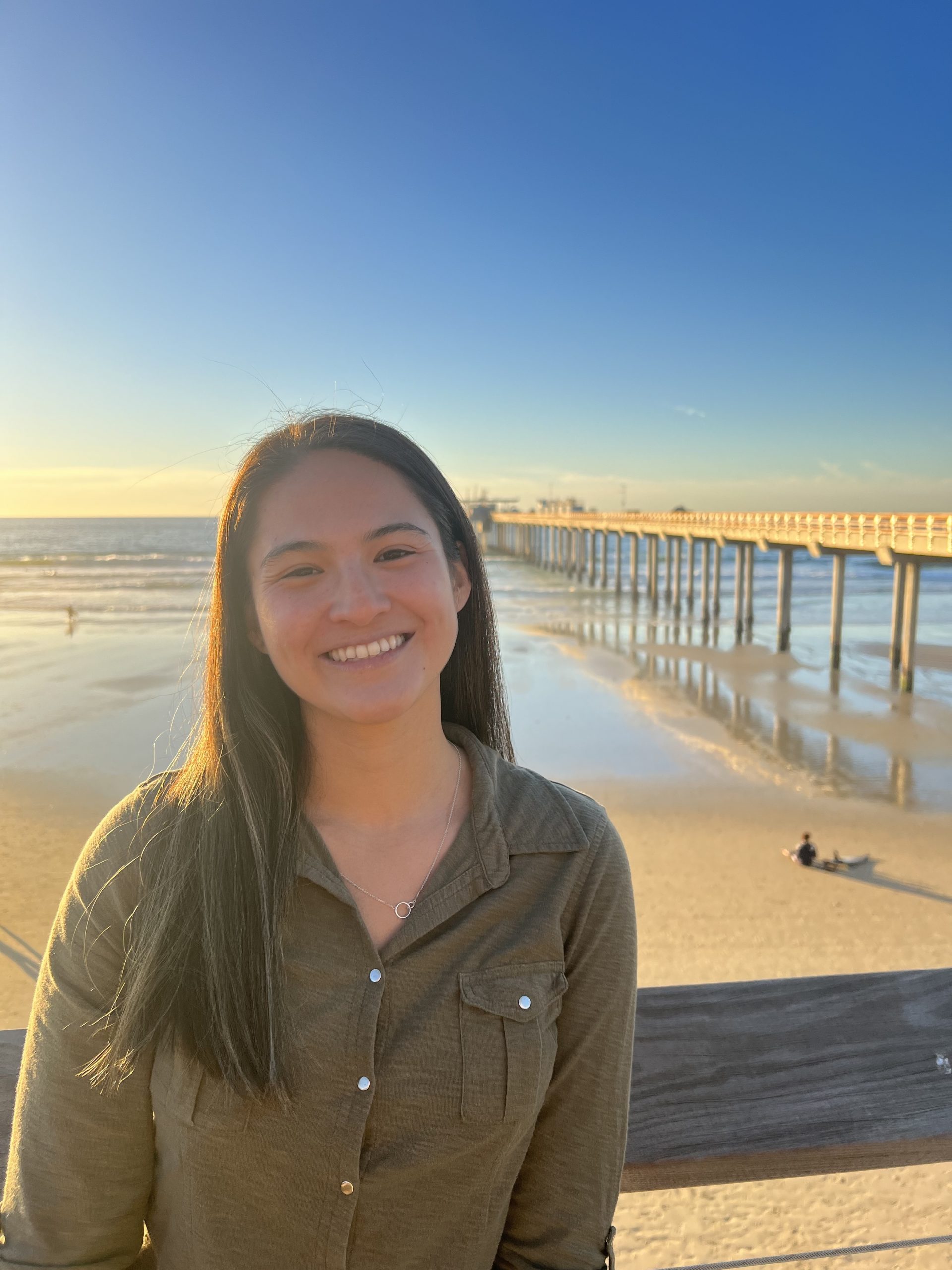
Hannah Budroe
Undergraduate Reseacher
Hannah is a 4th year undergraduate student currently pursuing an honors thesis using bioinformatics to study the zooplankton composition relating to environmental conditions in different water masses near New Zealand. She will be graduating with a BS in General Biology and a BA in History of Science. Previously, she has performed research developing gene-editing technologies for prevention of vector-borne diseases and pest control in Drosophila. She first joined the Décima Lab in summer 2022 as an undergraduate research fellow studying zooplankton composition in the California Current Ecosystem (CCE) as part of the CCE LTER REU program.
In her free time, Hannah also enjoys STEM outreach, works in the Basic Needs Department on campus, and has a variety of grandma-esque hobbies, including reading, going for walks, and crocheting. She also enjoys playing various instruments and rock climbing (when she doesn't fall off the wall).
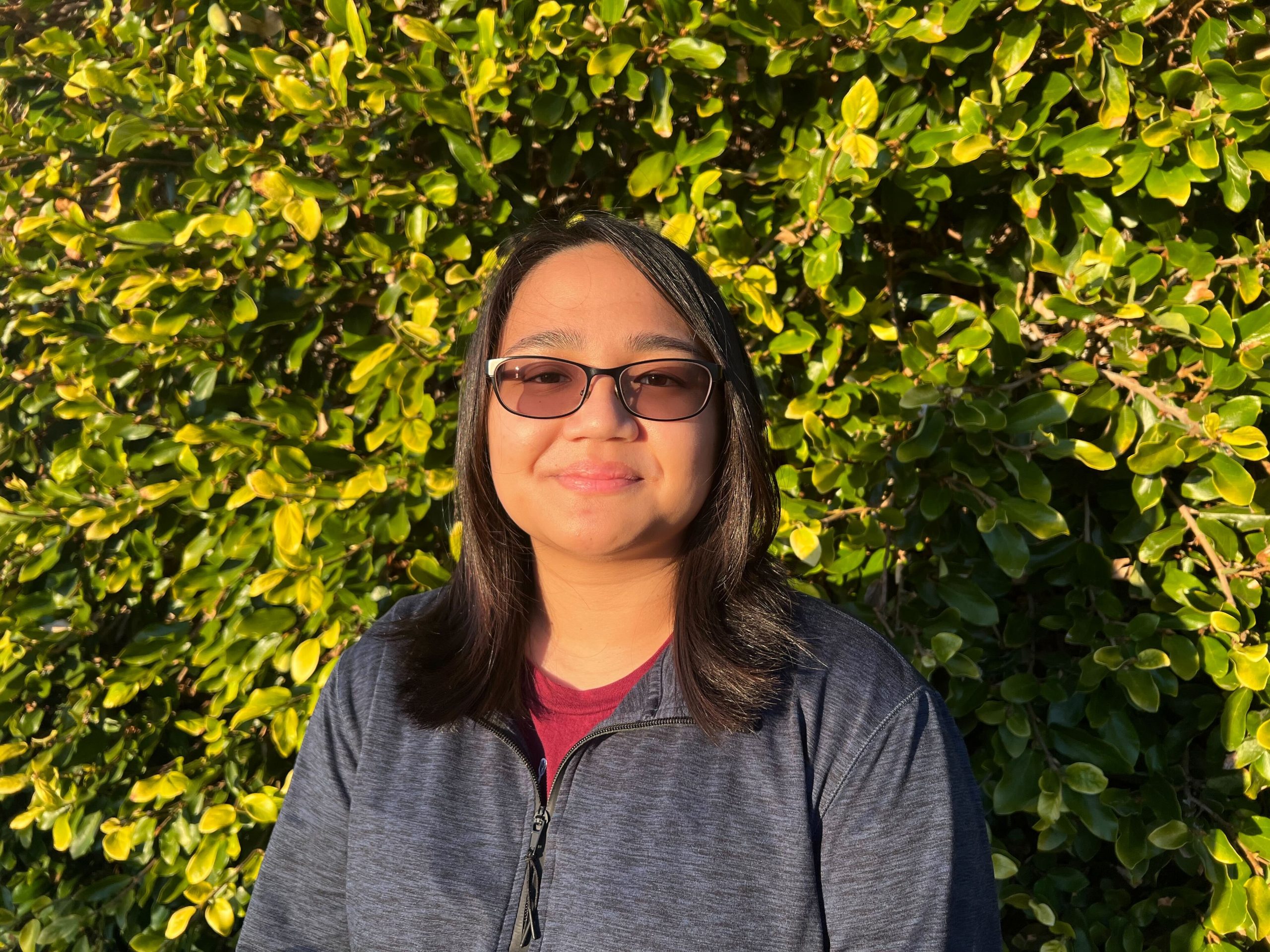
Jessell Lasam
Undergraduate Reseacher
Jessell is an undergraduate working on her Environmental Systems (EBE) major internship. She is closely working with size-fractionated zooplankton samples to furthering her understanding of food-web dynamics of the California Current Ecosystem and how environmental variables could effect zooplankton communities in the area.
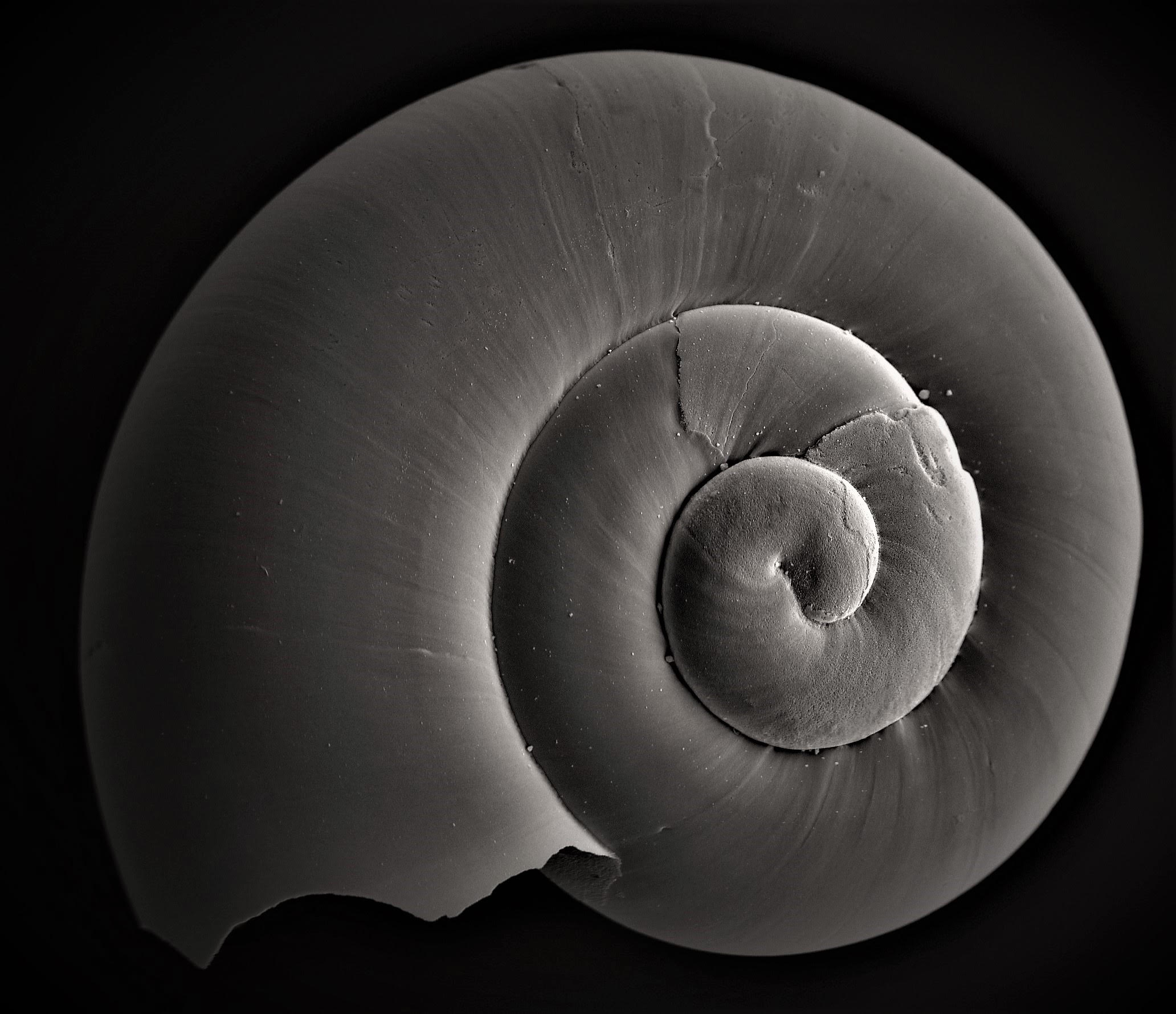
Tori Burns
Tori is a chemical engineer and pteropod imaging expert. She started as a CCE LTER REU and continues to use Scanning Electron Microscopy imaging for quantifying pteropod shell dissolution.
